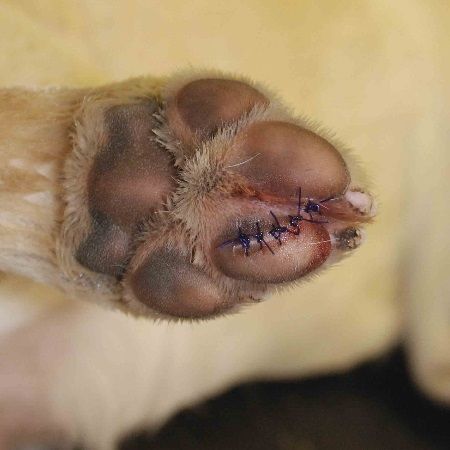We’ve all experienced it: You spend your winter inside, curled up on the couch, but when the sun comes out, you have the urge to go for a run. You were in pretty good shape last fall, so you head out for a few miles when the temperature rises above 45 degrees. As it turns out, you are decidedly not in shape. This is called Weekend Warrior Syndrome, and it can impact both you and Fido.
Weekend Warrior Syndrome is what happens when you don’t exercise at all during the week, then overdo your exercise on the weekend. This is exacerbated in the spring, when you may not have exercised intensely for several months. Weekend warriors may exercise for several hours without properly stretching, and over-exercising can often lead to injury, dehydration, and other ailments.
While you should be aware of your own propensity for Weekend Warrior Syndrome, be sure to keep a close eye on your pet as the temperatures get warmer. After several months of inactivity, your dog may have gained weight and lost muscle tone, and he could be a little stiff in the joints. On hot pavement or rough hiking terrain, cuts and sores on paw pads are a common danger. If you want to bring him on runs and long walks as soon as the weather gets nicer, be sure to do it in environments that are friendly to your dog. Even then, be sure to be on the lookout for signs of over-exercising in your pet.
It’s important to start reintroducing your outdoor pets to favorite activities slowly. This prevents exhaustion and injury. Start with shorter runs, walks, and hikes, the increase to longer stretches or games of fetch and Frisbee. Remember that dogs aren’t always in shape, and they’re not always ready to run. Like us, they need gradual conditioning through incremental increases in exercise frequency, intensity, and duration.
If you’re ready to bring Fido outside, you should also know about breed-specific risks. Labrador Retrievers, for example, can suffer from cranial cruciate ligament ruptures if they aren’t conditioned slowly. Herding and agility dogs can suffer ligament damage from frequent direction changes, and certain types of Retriever can experience patellar luxation. Before embarking on a high-energy activity, see what your pet might be genetically predisposed to and be sure to keep a close eye on discomfort.




